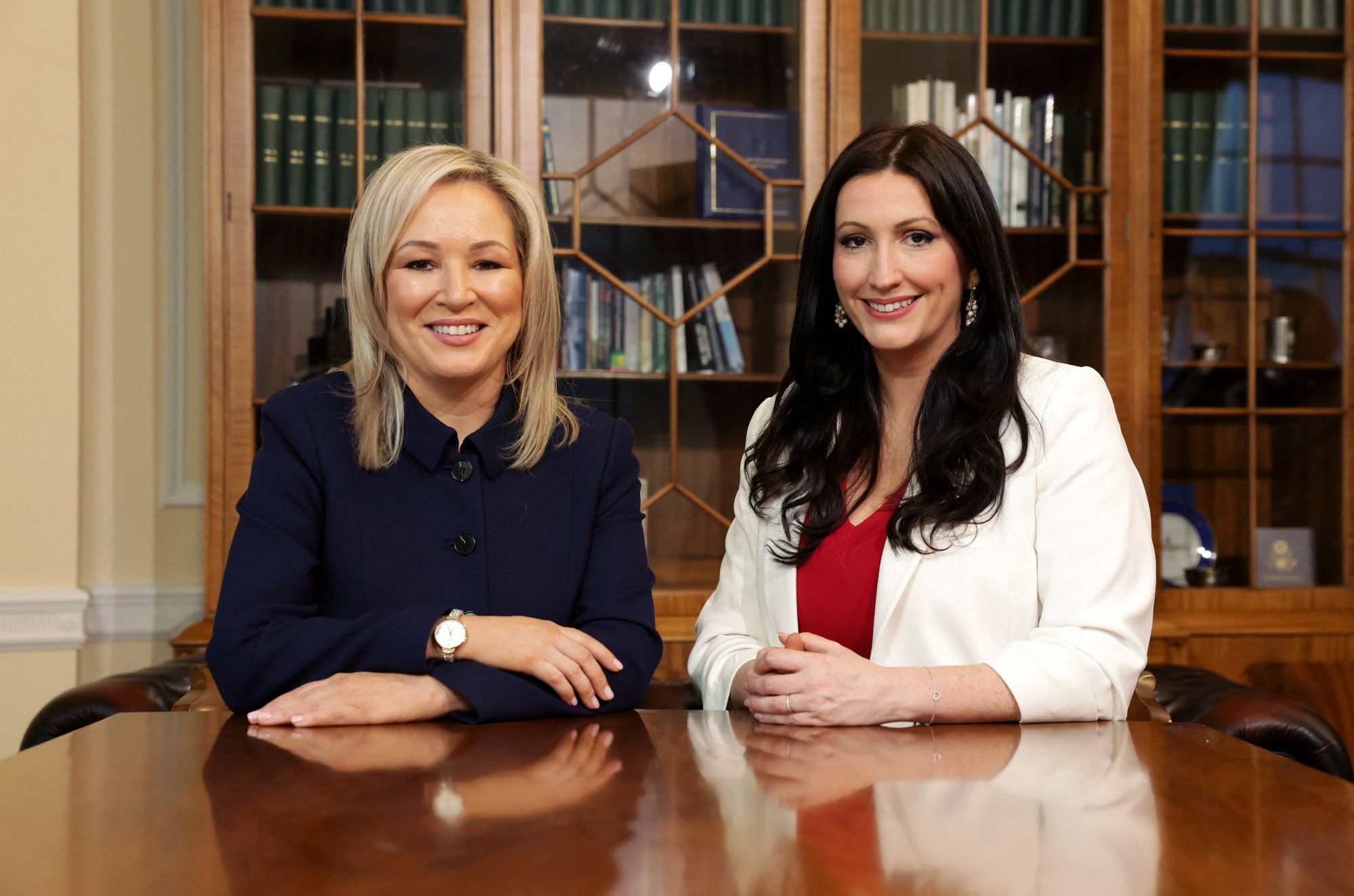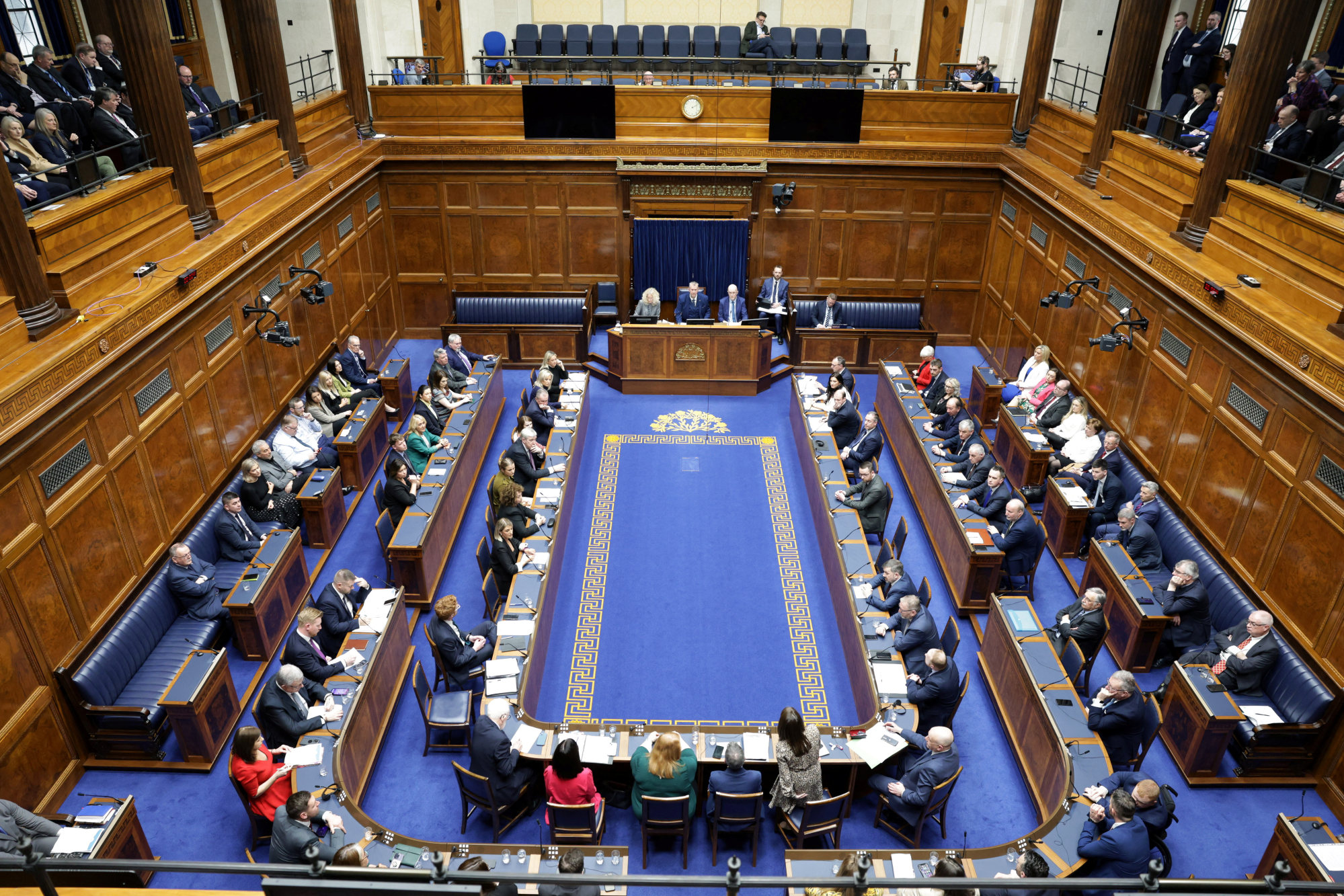
The Democratic Unionist party (DUP), which collapsed the devolved government in 2022 over its opposition to UK-EU trading terms for the territory, now holds the deputy first minister post, among others.
The DUP’s Emma Little-Pengelly will serve in the role, which has equal weight with O’Neill’s.
Sunak will meet both leaders and Northern Ireland’s newly formed executive at Stormont on Monday to “discuss their immediate plans for delivery”, his Downing Street office said.
The visit – his seventh to the conflict-scarred region since becoming prime minister in October 2022 – will also focus on “community engagements”, it added.
His first will be meeting “emergency responders, community heroes and families of those directly helped by the service” on Sunday evening.
In an interview broadcast earlier in the day, O’Neill said she expected a referendum on reunifying with the Republic of Ireland in the next 10 years.
“Yes. I believe we’re in a decade of opportunity,” she told Britain’s Sky News, shortly after her landmark appointment, when asked if she anticipated a so-called border poll within that time frame.
“There are so many things that are changing all the old norms, the nature of the state, the fact that a nationalist republican was never supposed to be first minister. This all speaks to that change.”
Michelle O’Neill to make history as N. Ireland’s first nationalist leader
Michelle O’Neill to make history as N. Ireland’s first nationalist leader
Northern Ireland was carved from Ireland in 1921 with an inbuilt Protestant majority, after pro-UK unionists had threatened civil war as the island sought self-rule from Britain.
Instead, three decades of sectarian conflict erupted within the UK territory in the late 1960s.

A 1998 peace deal largely ended the violence and provides for the possibility of an all-Ireland vote on unification, often referred to as a border poll.
The mechanism for initiating such a referendum was never spelled out, but the trigger is seen as consistent reliable polling on the issue.
But until this week, the DUP boycott had led to stalemate.
Ireland takes UK to European court over ‘Troubles’ amnesty law
Ireland takes UK to European court over ‘Troubles’ amnesty law
As part of its agreement with the DUP to restart power-sharing, Sunak’s government released a paper stating it “sees no realistic prospect of a border poll leading to a united Ireland”, citing recent polling.
“We believe that … Northern Ireland’s future in the UK will be secure for decades to come and as such the conditions for a border poll are unlikely to be objectively met,” it added.
O’Neill said she disagrees with the assessment.
“I would absolutely contest what the British government have said in that document, insofar as my election to the post of first minister demonstrates the change that’s happening on this island, and that’s a good thing.”

